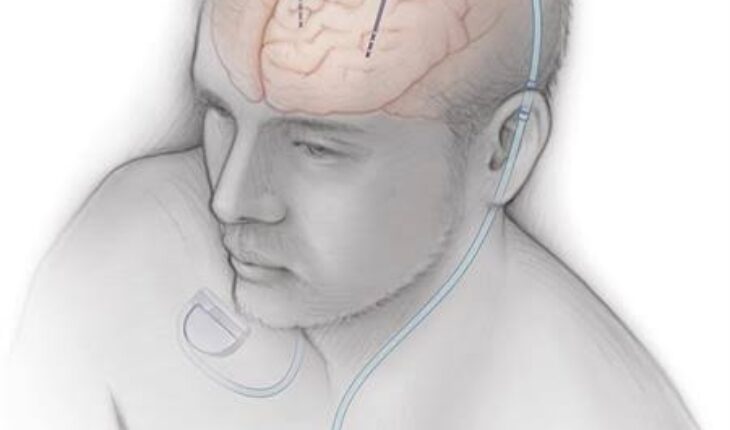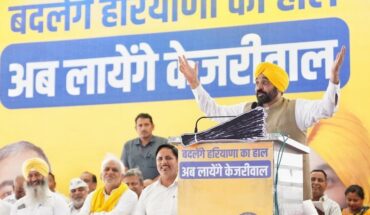New Delhi : A 51-year-old lady from Ghaziabad, suffering from Parkinson’s disease, shaky movements, stiffness and bradykinesia or tardy movements for the past several years, underwent an advanced neurological procedure deep brain stimulation surgery at Sir Ganga Ram Hospital in the city.
After nearly two months of follow-up treatment at the hospital, the patient after the surgery improved quite well and is able to lead a normal life with no side effects from the medication. “She underwent through a popularly called a “brain pacemaker,” deep brain stimulation involves a surgical procedure under which electrodes ( or fine wires) are fixed under the scalp and then inserted deep into the brain through the skull of a patient,” said the doctor.
A pacemaker-like device, known as a pulse generator, is then used to send weak electrical signals or impulses along these electrodes to specific areas of the brain. These signals, which travel along brain circuits, help influence muscle activity.
“When, the patients had come to the neurosurgery department of Sir Gangaram Hospital about a month back after a long and continue treatment of Parkinson, her condition was progressively getting worse though she was being managed with the medicines but her body had started developing side effects from the medicines, she was taking, “ said the doctor.
Though she was on medications, she was not able to control her hands and legs and they would move without her control. She tried taking treatment at various hospitals but her condition was improving and her symptoms kept getting worse. She finally came to us where she was thoroughly evaluated and we gave her an option of Deep Brain Stimulation,” doctor added.
“Deep Brain Stimulation is a new surgery where you stimulate particular areas of the brain. It acts just like a Pacemaker of the brain. In this case, we planned to stimulate the Subthalamic nucleus of the brain. The purpose of the surgery is to help control the disease and improve the patient’s lifestyle. It is particularly useful in diseases like Parkinson’s disease, tremors, dystonia and has been evaluated and successfully shown positive results for psychiatric conditions like depression and mania. The minimally invasive surgery is done while the patient is awake during the whole surgery with support of skilled anesthetists and technicians with a backup of advanced gadgets,” Dr Shrey Jain, Associate Consultant, Neurosurgery Department, Sir Ganga Ram Hospital.
“It is a minimally invasive surgery wherein electrodes are passed bilaterally in the deep brain through two small holes in the skull. Location was confirmed during surgery by examining the patient continuously and recording brain electric current. Her speech, eye movements, and power of the limbs was being monitored during the surgery and it was being observed how her symptoms are improving so as to make sure the effect of the surgery is maximum with minimal complications. During surgery, she stopped speaking at one point so electrodes were repositioned and her speech came back. CT Scan was also done after the surgery to make sure the electrodes are at the correct position. Later a battery was inserted in the chest wall like a pacemaker,” Dr Jain added.
This patient after the surgery improved quite well and is able to lead a normal life with no side effects from the medications. The dosage of the medications has reduced and their side effects are minimal. Her symptoms of shaking hands and legs have improved considerably. She can properly hold the things now.
“There are surgeries available now at very few selected places, where the diseases which did not have any cure earlier, can be brought under control with reduced medications. Over 7 million people are suffering from Parkinson’s disease alone in India and this disease can be debilitating. Other diseases which have shown positive results with Deep Brain Stimulation include tremors, dystonia, depression, OCD, epilepsy and chronic pain. With the advancing technology and surgical skills, people should be aware about such options so as to get the best chance to lead a normal life in spite of having these problems”, Dr Ajit K. Sinha, Senior Consultant.





